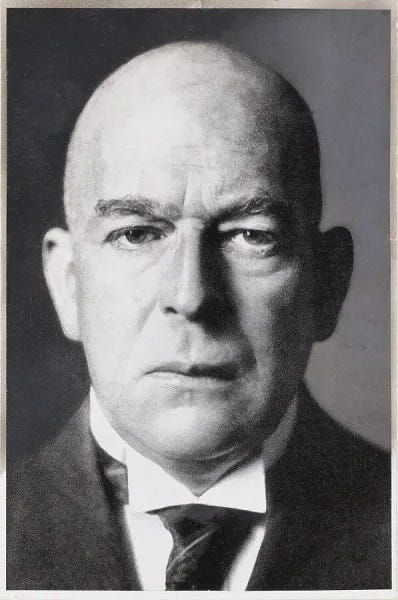Spengler's 'The Decline of the West' Revisited: An Enduring Prophecy?
Oswald Spengler's seminal work, "The Decline of the West," published in the early 20th century, remains a cornerstone for discussions on civilizational cycles and cultural decay. This article critically examines Spengler's framework, which posits that civilizations, much like organisms, undergo predictable phases of birth, growth, maturity, and inevitable decline. His central argument is that Western civilization, mirroring its predecessors, is transitioning from a vibrant cultural existence to a mechanized, superficial "civilization" state, characterized by materialism and individualism.
The enduring relevance of Spengler's ideas in the 21st century continues to fuel debates on historical analogies, cultural identity, and the implications of civilizational decline amidst contemporary societal challenges. While critics, such as Theodor Adorno, have challenged his deterministic views, pointing to the resilience and adaptability of cultures, supporters maintain that his insights offer valuable lessons for understanding current sociopolitical climates. As debates about cultural pessimism and the cyclical nature of history persist, Spengler's theories provoke critical reflections on the past, present, and potential futures of civilization.
Those who cannot remember the past are condemned to repeat it.
George Santayana
"Spengler's Decline of the West Revisited" ultimately serves as a significant discourse, interrogating the legacy of Spengler's ideas, their applicability to contemporary issues, and the ongoing relevance of his observations regarding the fate of civilizations. It challenges readers to grapple with the complexities of cultural evolution and consider the implications of his framework in navigating the uncertainties of modern society.
Historical Context
Oswald Spengler's "The Decline of the West" emerged from a profound historical milieu marked by significant political, social, and cultural transformations. The 17th and 18th centuries witnessed a burgeoning interest in historiography, as Western European historians grappled with religious conflicts, the advent of secularism, and an emerging skepticism towards universalist claims of reason. Concurrently, increased geographical knowledge and cultural exchanges, spurred by exploration, trade, and colonization, further complicated historical narratives and methodologies.
Spengler's analysis heavily draws on the expansive tendencies of the Faustian culture, which he characterized as an insatiable drive for political, economic, and spiritual extension. This culture sought to transcend geographical limitations, exemplified by ambitions to reach both the North and South Poles, ultimately creating a global colonial and economic system. The political landscape of the era saw a concentration of power in the hands of a few superior individuals, fostering an illusion of democratic self-determination.
The thematic exploration of historical cycles and the decline of civilizations in Spengler's work is rooted in a response to the historical crisis of his time, particularly in the context of the imminent World War. Spengler posited that the war was not merely a collection of momentary events shaped by nationalism or economic interests, but rather a manifestation of a profound historical transformation that had been preordained over centuries. His reflections on the cyclical nature of history and the inevitability of cultural decline were grounded in a metaphysical understanding of humanity's trajectory, resonating with contemporaneous philosophical debates concerning the nature of history and culture.
Spengler's work has remained relevant over the decades, continuing to provoke discussions on cultural decay, the implications of civilization cycles, and the predictive value of his theories for contemporary societal trends. Despite critiques regarding his methodology and specific predictions, the foundational ideas presented in "The Decline of the West" continue to influence the discourse surrounding historical and cultural analysis.
Key Concepts
Historical Analogy and Interpretation
Oswald Spengler emphasizes the crucial role of historical analogy in understanding the evolution of cultures. He critiqued earlier historians, such as Ranke, for drawing parallels that lacked significant morphological relevance, suggesting their comparisons often fell short of deeper insights. For Spengler, the exploration of historical figures and events should reveal underlying cultural phenomena rather than merely surface-level similarities.
He proposed a more nuanced understanding of history that transcends mere chronological arrangements of facts, enabling scholars to reconstruct long-lost cultures and predict future developments by identifying profound morphological connections.
Culture vs. Civilization
Spengler introduces a critical distinction between "Culture" and "Civilization," characterizing the former as a living organism that embodies the soul of a society, while the latter represents a mechanical and artificial construct devoid of genuine roots. This distinction marks a turning point in Western history around the year 1800, where Culture signifies a profound and evolving existence, and Civilization denotes a detached, intellectualized experience of life.
The implications of this dichotomy extend to how individuals perceive destiny and causality, with the "Culture-man" viewing life as an organic journey and the "Civilization-man" as a series of mechanistic events.
Civilization is a limitless multiplication of unnecessary necessities.
Mark Twain




